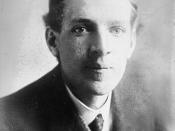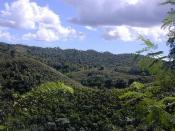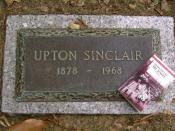Upton Sinclair, the author of The Jungle, is known as the world's greatest muckraker because of his exposure of some of the world's problems in his literature and journalism. In 1904, he was commissioned by a socialist newspaper to investigate and record the living and working conditions in Chicago's stockyards. Sinclair observed the working environment in the stockyards for seven weeks to gather information. In 1905, The Jungle was published serially in the Appeal to Reason. Despite the popularity of Sinclair's work, it was almost impossible to get it published in book form because it disclosed information of the meat industries unsanitary working conditions and the description of the plight of immigrants in America. After checking that Sinclair's observations in it were true, Ultimately Doubleday, Page and Company published The Jungle in 1906(Moore 181). Because of its unfathomable subjects and horrifying descriptions, The Jungle had tremendous impact on the nation by informing the people of the unsanitary and horrible working conditions.
The most prominent public outrage came from the tales in The Jungle of the unsanitary working environment in which the food was made. Sinclair wrote of how sausage was made of all the bad parts of the meat, scraps off the factory floor, sawdust, and even body parts of the workers which were taken off by dangerous blades. He told of how the supervisors dyed and cleaned the meat to make it look fresh, even though it was old and diseased.
The public reacted to this description by becoming much more cautious when buying meat, and meat sales declined greatly. President Theodore Roosevelt was also pressured into responding to the public's reaction. When the first investigating committee exonerated the packers, Roosevelt appointed the Neill-Reynolds Commission because of public pressure and Sinclair's own personal appeal. Roosevelt also set many...


